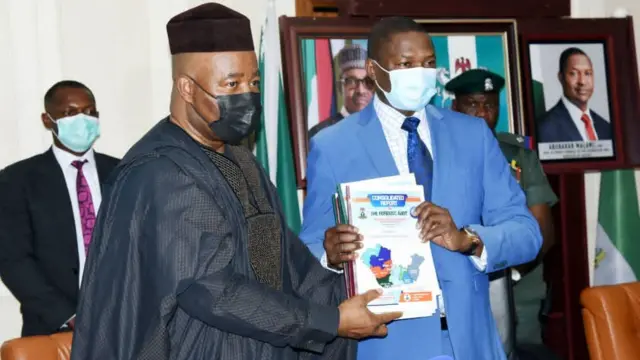Civil Society Group Pressures Nigerian President to Release Niger Delta Forensic Audit
A leading Nigerian anti-corruption organization has intensified calls for the immediate release of a long-suppressed forensic audit report into the Niger Delta Development Commission (NDDC), accusing successive governments of deliberate inaction that perpetuates impunity and obstructs justice.
The Socio-Economic Rights and Accountability Project (SERAP) recently sent a formal letter to President Bola Tinubu, urging him to direct the Attorney-General of the Federation to investigate allegations of obstruction surrounding the 2021 audit. The group alleges that high-ranking officials and politicians implicated in the findings have conspired to prevent its publication, thereby undermining transparency and accountability in one of Nigeria’s most resource-rich yet underdeveloped regions.
A Report That Has Been Shelved for Too Long
According to SERAP, the forensic audit — commissioned at a cost of N1.4 billion — was submitted to former President Muhammadu Buhari in September 2021 but has never been made public. The delay, now stretching nearly four years, has fueled widespread speculation about efforts to protect politically powerful individuals from scrutiny.
In its correspondence dated July 5, 2025, SERAP Deputy Director Kolawole Oluwadare called on President Tinubu to break the silence surrounding the report. He further requested that the government identify and prosecute those allegedly responsible for suppressing it, publish the full audit findings, and recover misappropriated funds estimated at over N6 trillion.
Among the most shocking revelations reportedly contained in the audit are claims that a former minister’s wife received N48 billion in a single year for a program ostensibly aimed at “training Niger Delta women.” Additionally, the report is said to expose how numerous contracts were awarded to members of the National Assembly, exacerbating corruption and poor governance within the NDDC.
Obstruction of Justice or Systemic Failure?
SERAP described the continued suppression of the report as an active obstruction of justice, emphasizing that those who blocked its release appear to be engaged in a coordinated effort to evade accountability.
“The forensic audit report of the NDDC can no longer be left to gather dust,” the organization stated. “The continued failure to publish the report undermines public trust and confidence, especially among victims of corruption in the Niger Delta who have waited too long for justice and accountability.”
The group warned that if the Tinubu administration fails to act within seven days of receiving the letter, legal action will be initiated before the ECOWAS Court of Justice. This would compel the Nigerian government not only to release the report but also to pursue criminal charges against those named in its findings.
Constitutional and International Obligations at Stake
SERAP highlighted that Nigeria’s failure to act on the audit contravenes both the national constitution and international anti-corruption frameworks, particularly the United Nations Convention Against Corruption (UNCAC). The organization argued that by refusing to address the findings, the government signals that the audit was not a genuine attempt at reform, but rather a tool used to stall meaningful accountability.
Moreover, the consequences of financial mismanagement in the NDDC extend far beyond political circles. According to SERAP, the missing N6 trillion and more than 13,000 abandoned development projects have severely impacted the quality of life for millions of people in the Niger Delta. Residents continue to suffer from inadequate access to healthcare, education, clean water, and electricity — basic services that could have been improved with proper stewardship of public funds.
A Call for Transparency and Action
SERAP reiterated that releasing the report and acting on its findings would mark a significant step toward addressing systemic corruption and rebuilding public trust in Nigeria’s institutions. It emphasized that transparency must not remain a mere slogan but should translate into concrete actions that hold the guilty accountable and restore hope to communities ravaged by neglect and exploitation.
“Publishing the report and acting on its findings would be a critical step in addressing poverty and rebuilding public confidence in the fight against corruption,” the organization concluded.
As pressure mounts on the federal government, all eyes are now on President Tinubu and his administration to respond decisively — or face legal consequences that could reverberate across regional and international legal systems.





